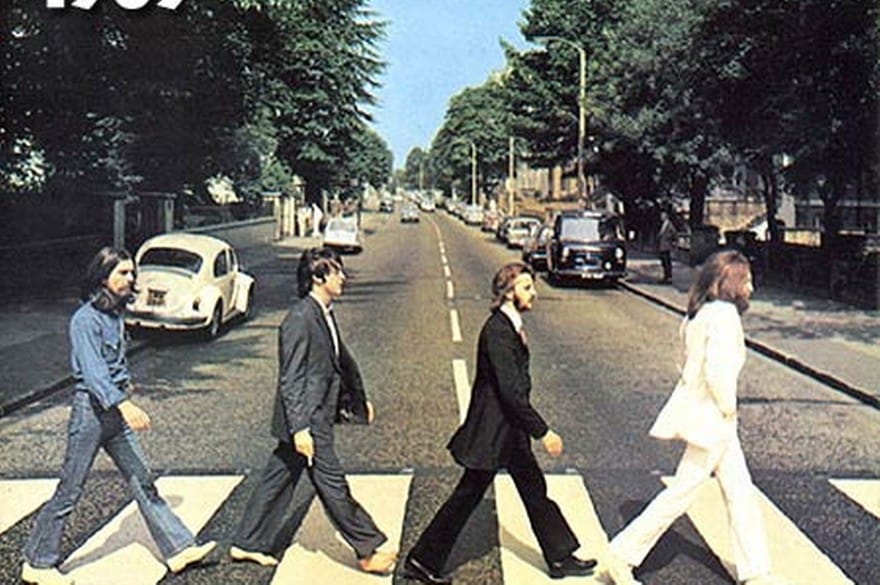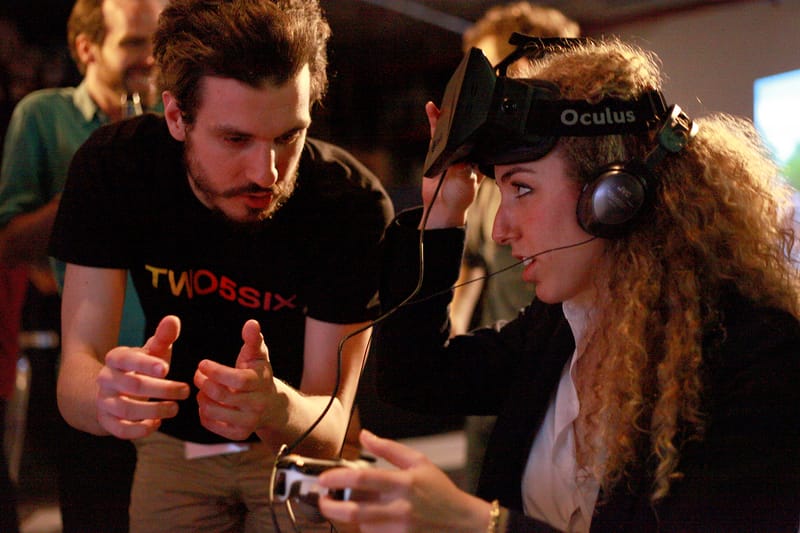There’s been a lot of chatter about Respawn Entertainment’s upcoming shooter Titanfall. You’ve probably read proclamations that Titanfall is a Call of Duty killer, that it will blur the distinctions between single player and multiplayer modes, and that it’s some insane blockbuster mash-up of guns, parkour, and giant robots. It probably is a lot of those things. But according to the game’s composer Stephen Barton, it’s also a synthesis of digital and analog audio. All that bombast and cross-genre meshing are actually key elements of Titanfall’s original score.
If Barton’s name sounds familiar in the FPS arena, that’s because he also composed the original score for international mega-hit Call of Duty 4: Modern Warfare. However, Barton is quick to point out how different his approach to Titanfall was from Call of Duty, and how his compositions are representative of those distinctions. “[Call of Duty 4’s] score was influenced by similar modern warfare and espionage movies like Spy Game and other Tony Scott films,” he says, but Titanfall is “set hundreds of years in the future, and there are no rules, so you can kind of go anywhere [with the music].”

One place Barton “took” the music was to merge synthetic and organic sounds together to complement Titanfall’s signature human/robot interactions. With the human-piloted mechs, there’s this idea that “the technology is improving on the organic, and is supposed to make everything better. So I used synthetic and electronic sounds as blending elements. Here I can take a French horn line and design a synth to mesh with it in order to make a new, unified sound with an organic edge to it.” Titanfall’s science fiction future is not one in which man and machine blend together indistinguishably; they work together.
Barton’s challenge was to craft themes for each team to evoke their respective characteristics, without resorting to one side sounding “good” and the other “evil.”
And when Titanfall players aren’t working together, they’re fighting on opposing sides, which Barton has also given much consideration in his score. On the one hand, there’s the IMC, a mining conglomerate that defends their business with lethal force, and on the other is the Militia, a loose collective of rebels and upstarts bent on reversing the injustices wrought upon them. Barton’s challenge was to craft themes for each team to evoke their respective characteristics, without resorting to one side sounding “good” and the other “evil.”
To achieve this duality, Barton composed specific scores for both the IMC and Militia forces, taking up the nonpartisan mantles of digital and analog sounds respectively. He even went so far as to record the two sides in separate rooms at Abbey Road Studios in London. Yes, that Abbey Road—the one with The Beatles and the crosswalk and the whole deal. Though it’s best known for its rock music reputation in the 60s and 70s, Abbey Road Studios has actually been a prime location for recording orchestral film scores since the early 80s as well, including The Empire Strikes Back, the Lord of the Rings trilogy, and many others.

“With the IMC, it’s all about strength in numbers in this big hulking corporation, “ Barton explained. So that section was recorded in the massive space of Studio 1, using upwards of 60 string players at once. “It’s funny,” Barton continued. “The bigger you get with a symphony orchestra, the more it begins to sound kind of synthetic, like a synth string patch. You lose the sensation of hearing those individual players, and so it almost stops sounding human.” So even though the recording process was analog, the end result is meant to sound more digital, blurring the lines between the unique vibrations of a real violin and a MIDI keyboard with a software plug-in.
For the Militia side, Barton went for the opposite effect, hoping to elicit a bit more of a human element. “We recorded a lot of that in Studio 2, which is a much smaller room yet still has a big sound to it.” According to Barton, the difference is that the smaller environment lends individual instruments “a bit more presence.” As for the sound itself, Barton selected a more organic instrumentation that places the onus on analog guitar-based distortion instead of the more synthetic angle used for the IMC.
“Where analog [sounds noticeably different from digital] is when you really push it. The louder you get, the more it breaks up in a really cool, pleasing way.”
Think of it as listening to a vinyl record instead of an MP3 file. In an analog format like vinyl, you hear the warmth of surface noise—the crackles and static that come from the friction between physical objects in contact with one another. With digital sound, producers can create clean, frictionless tones, born from pure code. “Where analog [sounds noticeably different from digital] is when you really push it. The louder you get, the more it breaks up in a really cool, pleasing way.” In doing so, Barton could also successfully match the power and volume of the IMC’s mass orchestra with a more analog-flavored loudness for the Militia, leaving neither to sound weaker than the other, yet keeping them noticeably distinct.
Though it’s not a clean split, framing Titanfall’s opposing sides along a digital/analog divide helps to represent each team’s unique motivations and abilities where the breakneck pace of the game’s action leaves little room for introspection. “It never stops,” Barton noted. “So it’s about finding gradations of tension.” In crafting the very foundations of the score, down to its recording methods, as instantly evocative and resonant, Barton hopes his Titanfall score will cut through the noise and make an impact.





